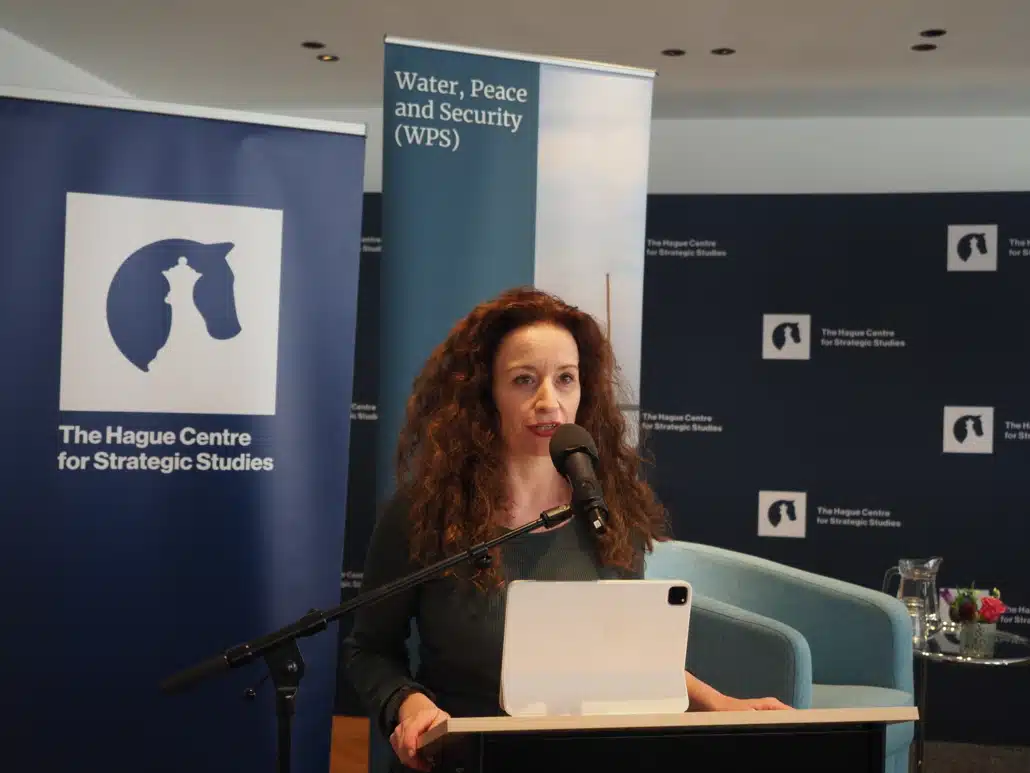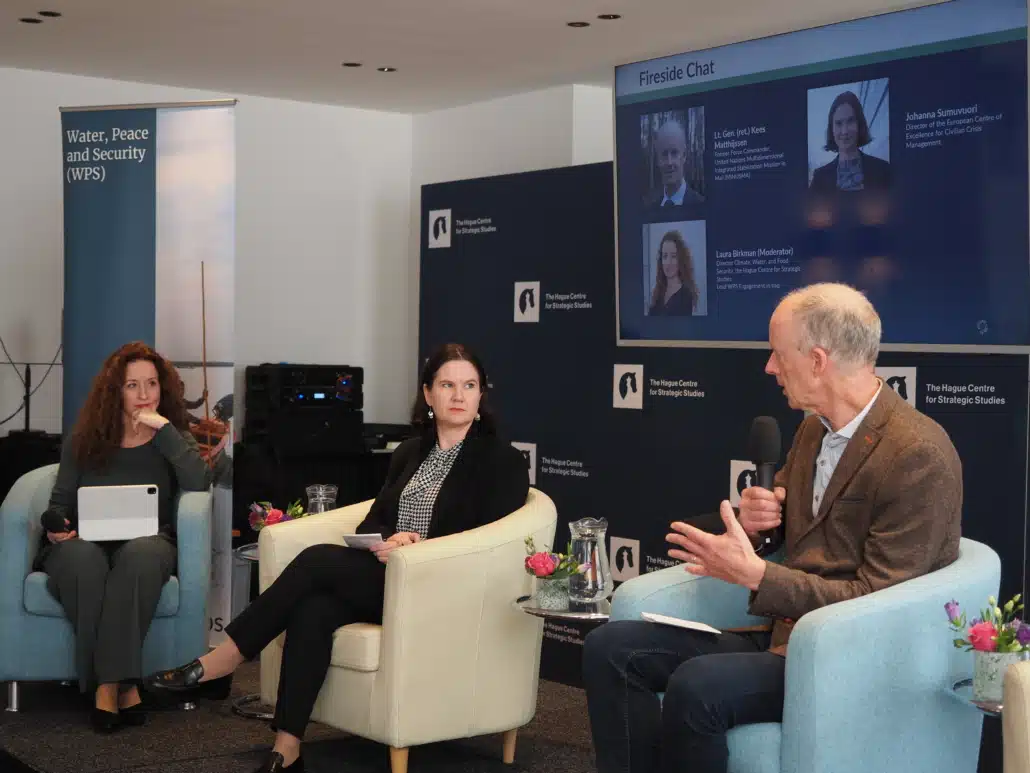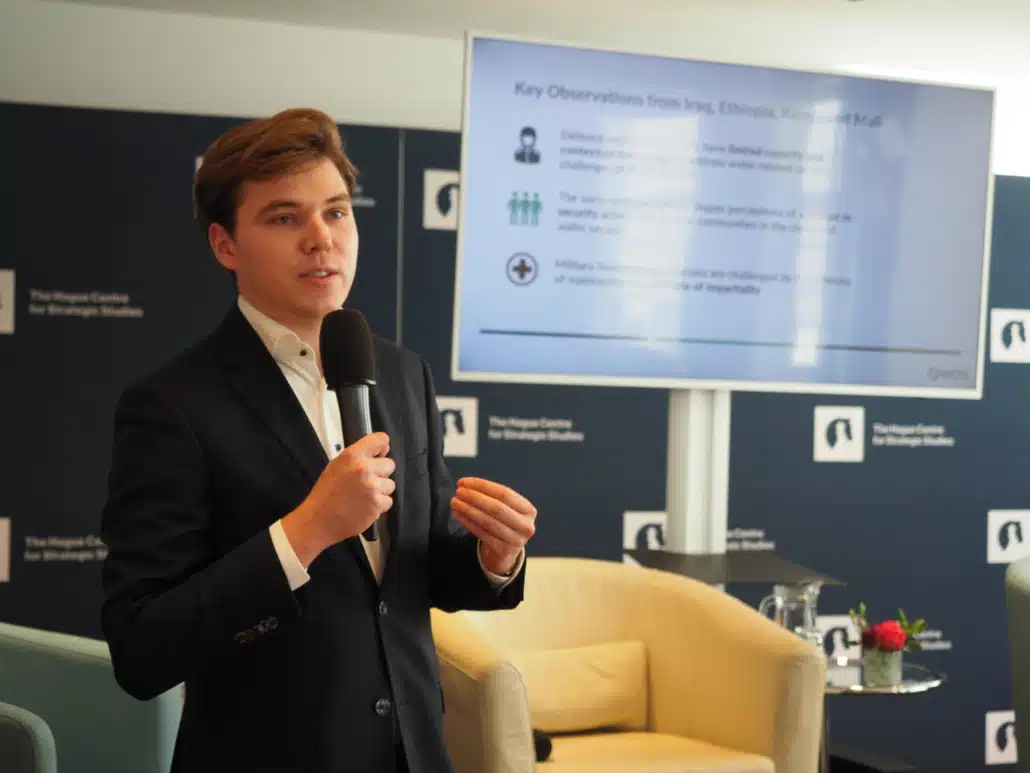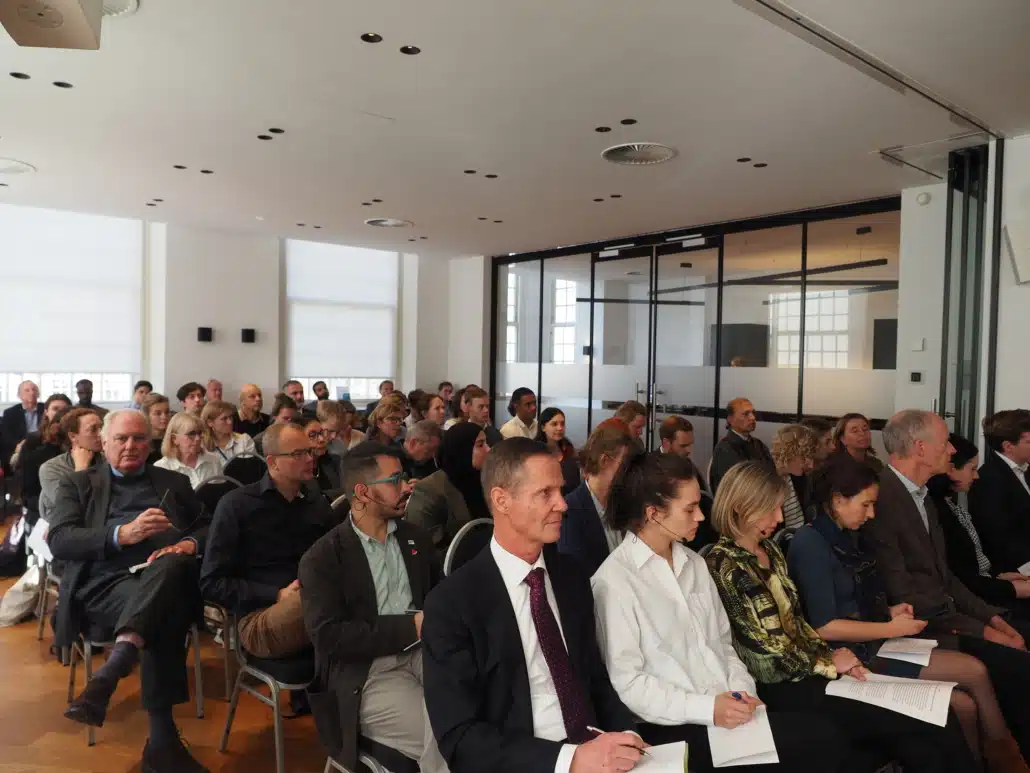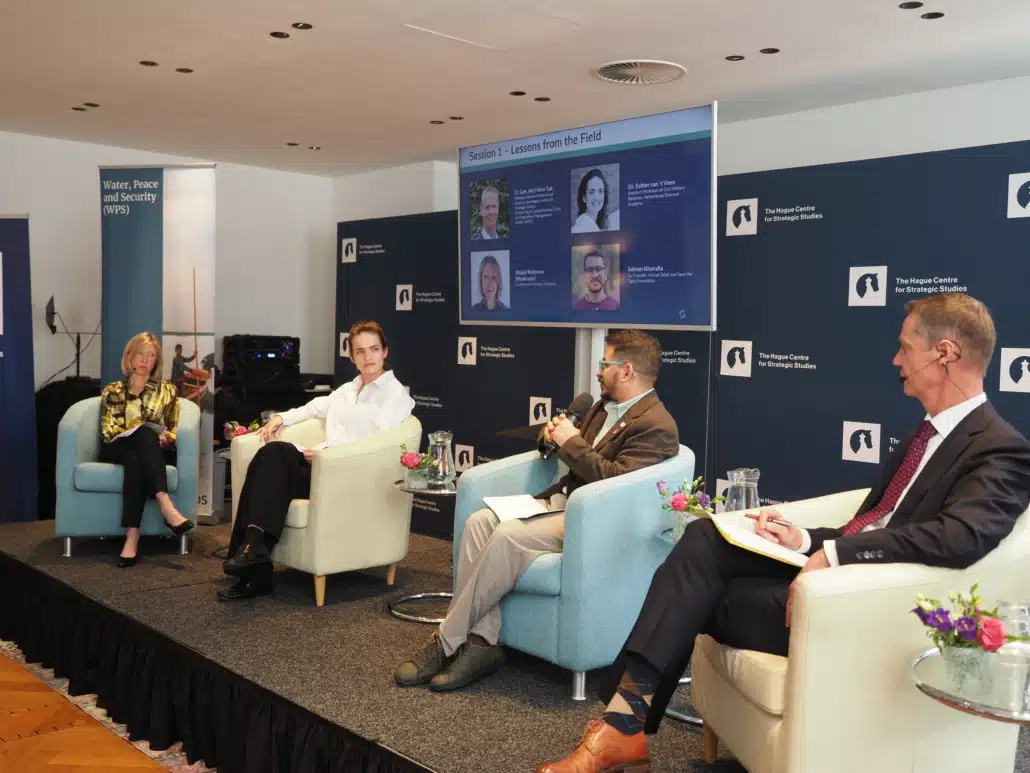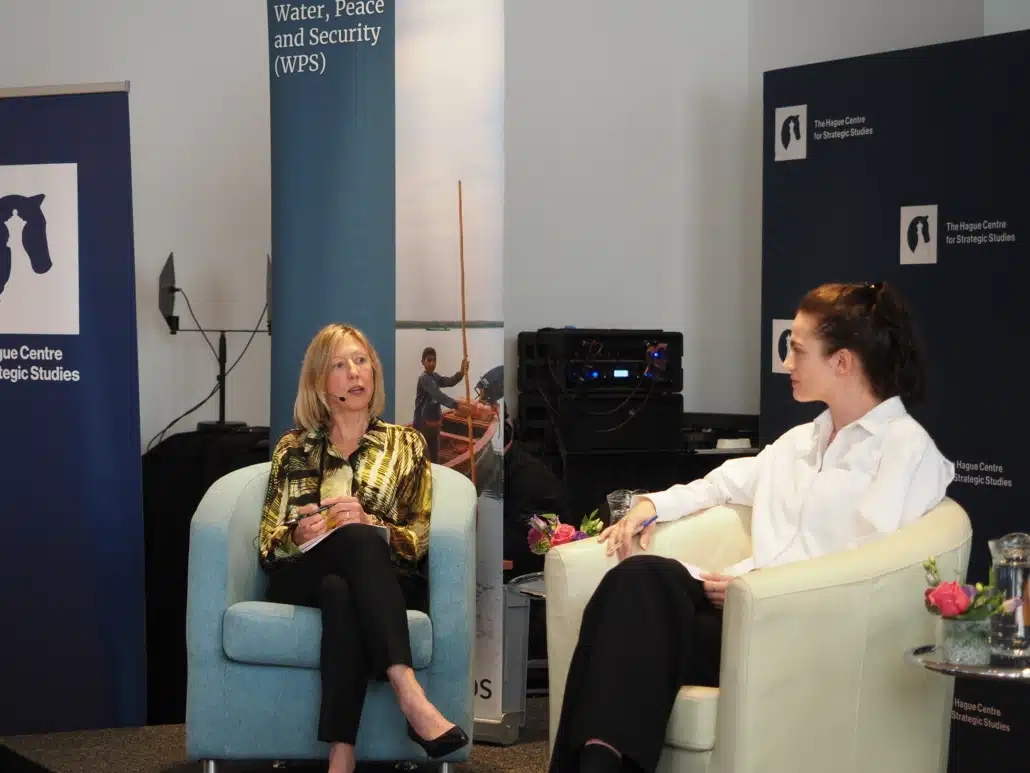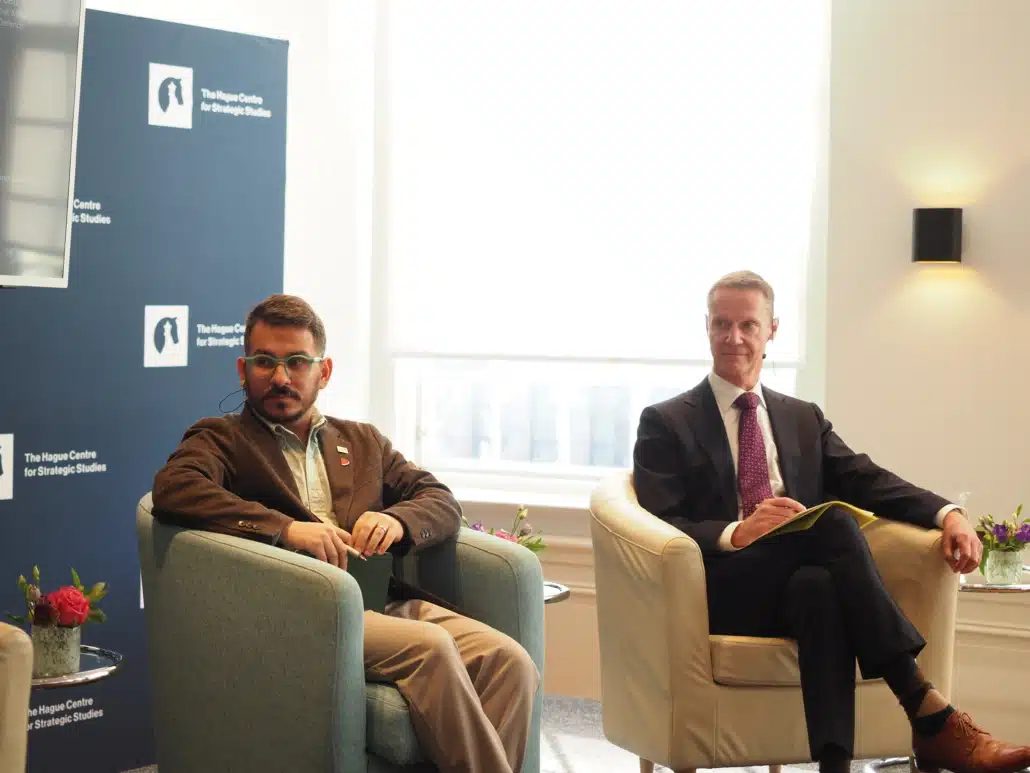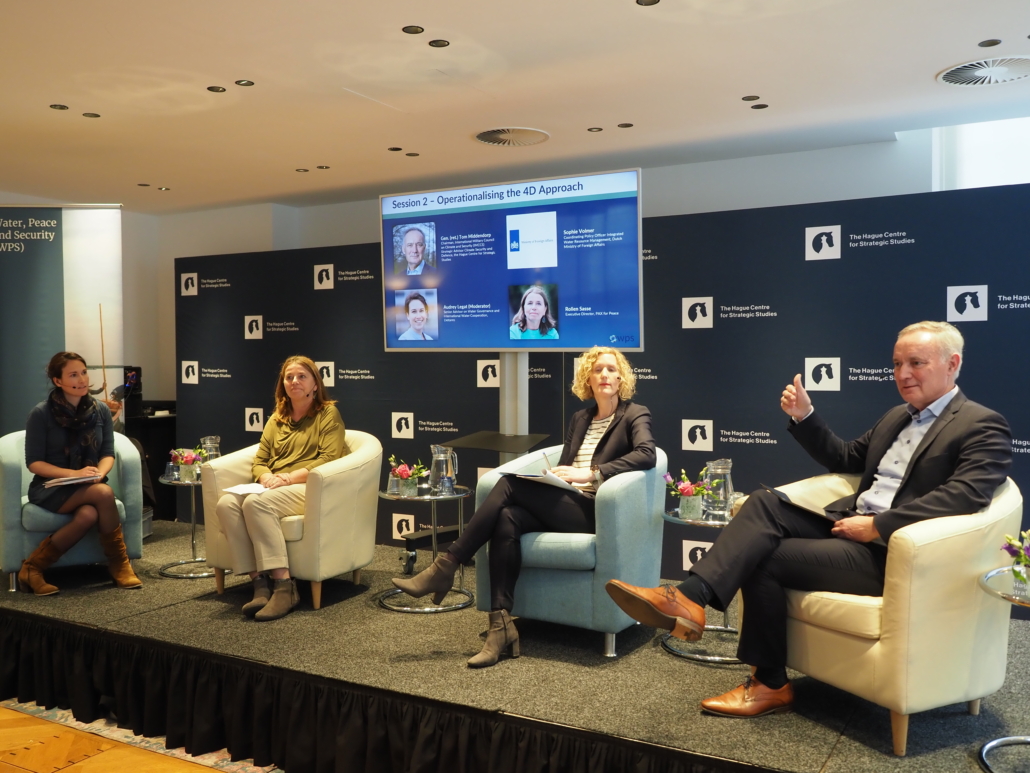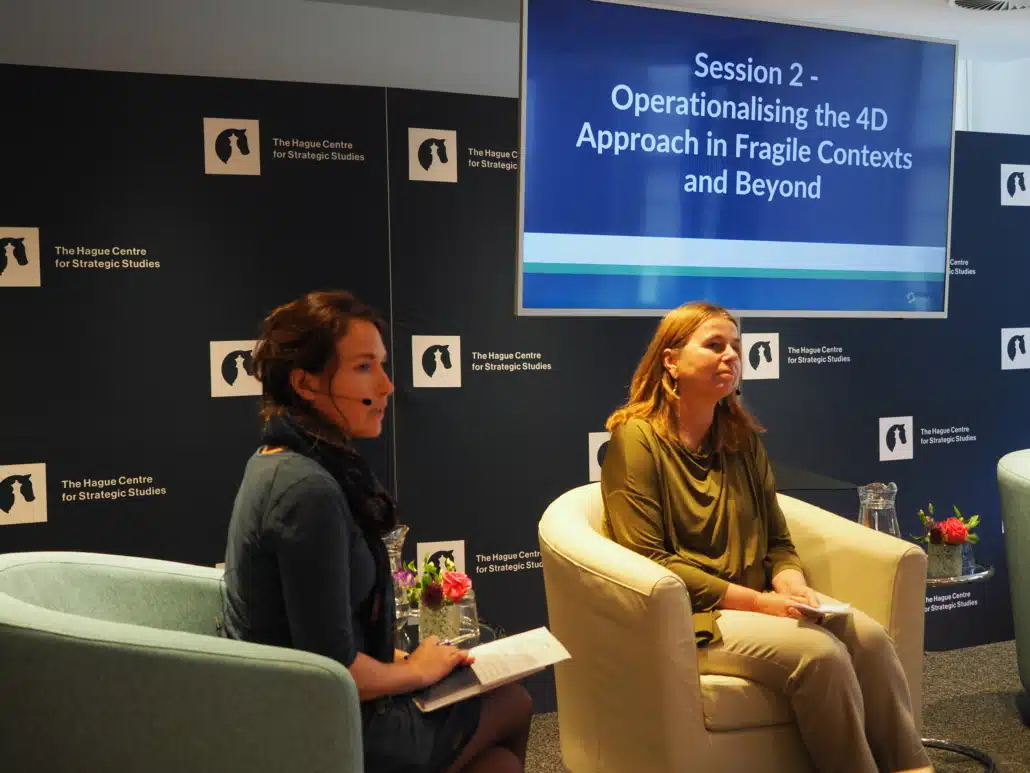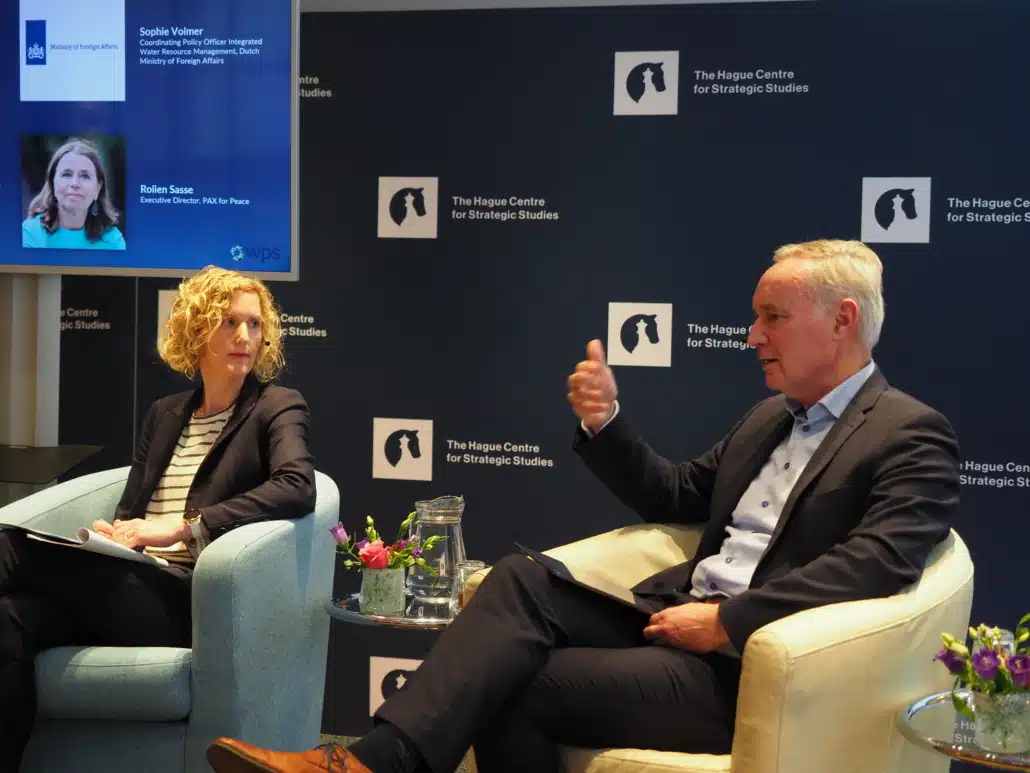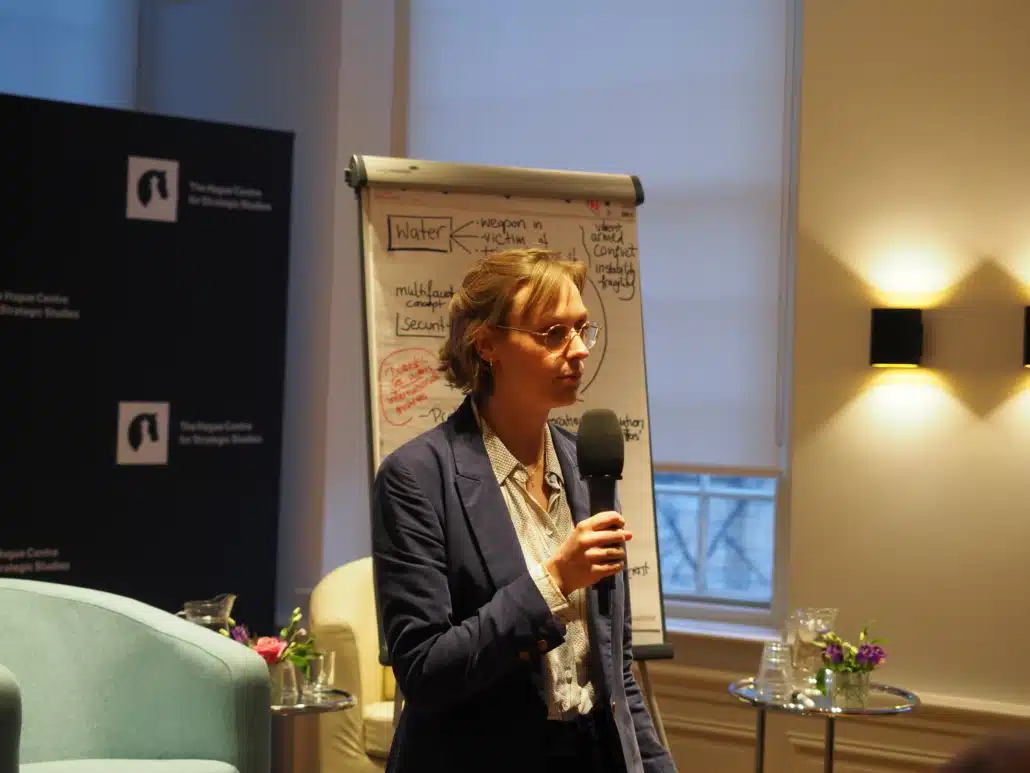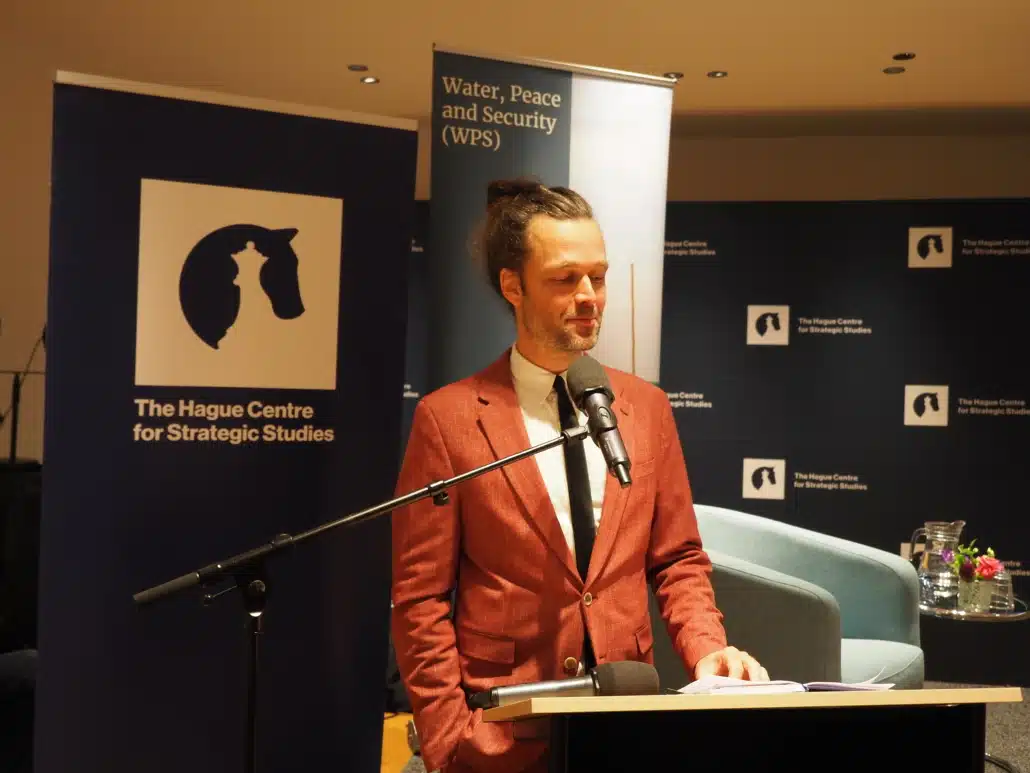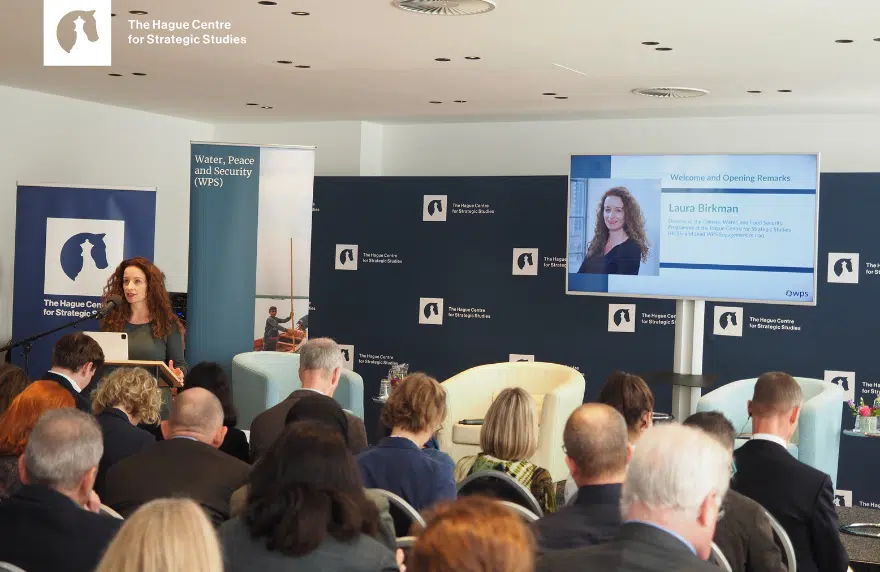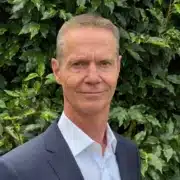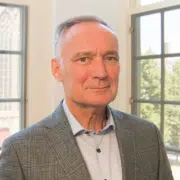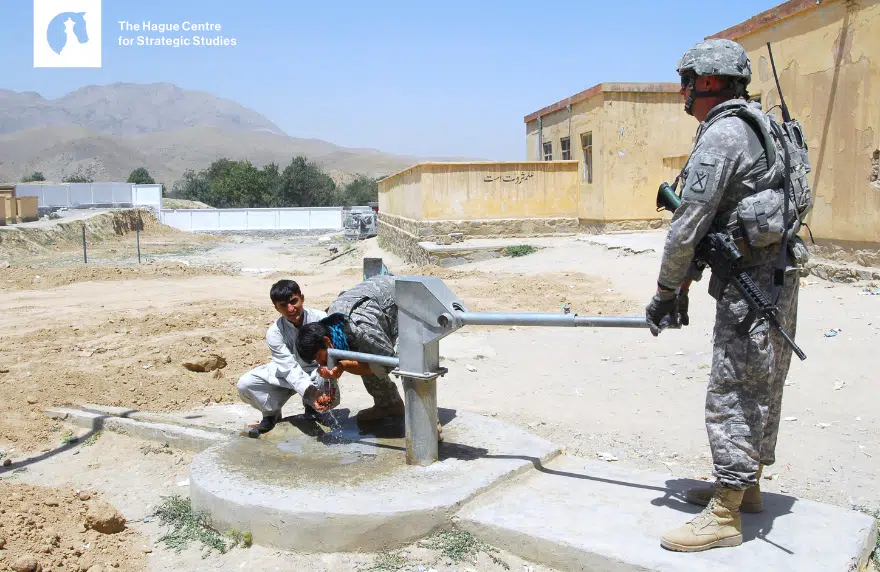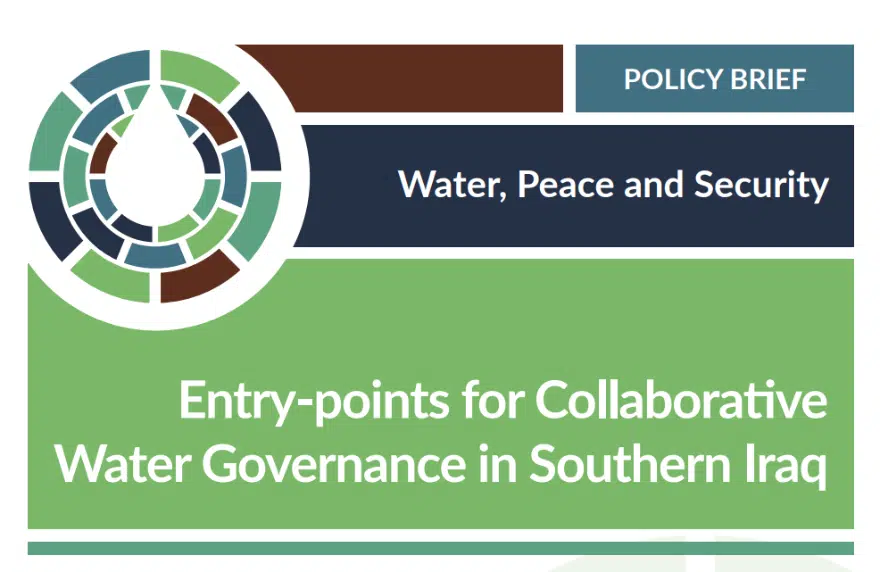The Water, Peace and Security (WPS) Partnership has long supported an integrated approach to tackling water-related security challenges, promoting cooperation among the 4D communities: development, disaster relief, diplomacy and defence. In recent years, defence and security actors, the so-called ‘4th D’, have shown increased interest in water both as a threat and opportunity for peace. They are also increasingly looked upon to support prevention and stabilisation efforts in water-stressed fragile contexts.
Nevertheless, the involvement of defence and security actors in tackling water-related security challenges remains limited. WPS has thus sought to strengthen the connections between the 4D communities over the past years and support an integrated approach that includes defence and security actors. This leads to the core question: What role can – and should – defence and security actors play in supporting responses to water-related security challenges?
This question is becoming more relevant given the current geopolitical context and the increasing salience of security and defence actors in both international and domestic politics. Our current world does not view climate change and water-related security as a priority. Instead, geopolitical rivalries, increasing international competition, and preparation for interstate wars seem to be at the forefront of the global political agenda. Climate and water security tend to lay at the wayside, even though they are integral to human, national, and international security. Finding ways to put climate security back on the agenda of defence and security actors is thus key to addressing contemporary security challenges.
Within this context, WPS organised the 4D Mini-Symposium, From Fragility to Resilience: Engaging Defence and Security Actors in Water Security, hosted at the Hague Centre for Strategic Studies on Wednesday November 5th, 2025. Including discussions of on-the-ground experiences in conflict-affected contexts such as Iraq, Mali, and Kenya, as well as panels including representatives of defence, diplomacy, development, and civil society, the event emphasised the importance of cross-sectoral cooperation in water security. It delved deeper into the potential role of defence and security actors in water security and mapped potential pathways for 4D cooperation.
This report synthesises the key take-aways from the event: (1) Foster Cross-Sectoral Trust and Understanding, (2) Build Comprehensive Cooperation Structures and (3) Understand Local Realities.
- Foster Cross-Sectoral Trust and Understanding
“Let’s meet each other before we need each other”
Building sustainable 4D cooperation requires trust and mutual understanding. Panellist observed the current mistrust between the different sectors, with military actors often having prejudices regarding civilian actors and vice-versa. They emphasised the importance of moving beyond these preconceived notions and learn to understand one another to achieve comprehensive cooperation in water-related security.
a. Overcome Biases and Engage in Dialogue
Panellists and participants from different sectors argued that distrust and prejudice were key barriers preventing the integration of defence and security actors in 4D cooperation in water-related security. Embracing dialogue and attempting to understand one another’s perspectives was seen as a key step both defence and security communities as well as civilian actors needed to take to achieve sustainable cooperation. Being willing to go beyond one’s preconceived notions of the other and engage in cross-sectoral dialogue, being open to different perspectives, was thus seen as a necessary step to integrate defence and security actors in water-related security.
Nevertheless, some panellists highlighted that this dialogue needs to consider the power asymmetries often present between the various 4D actors. Given the increased role that defence and security have taken both within the European continent and in neighbouring regions, and the increasingly weakening role of civil society, power asymmetries can often undermine cooperation or create a highly unequal playing field. In addition, funding disparities between military and civilian actors can often widen the gap between the two. As such, meaningful 4D dialogue needs to be sensitive to power asymmetries and other inequalities between actors to truly achieve trust and be a baseline for cooperation.
b. Learn to Speak Each Other’s Language
Building cross-sectoral trust and understanding requires learning about the other and the world they operate in. Panellists observed that different sectors often speak different ‘languages’, using different vocabulary and sector-specific jargon when communicating their ideas. This can often lead to misunderstandings across sectoral lines or misalignments, which hinders 4D cooperation in water-related security. To resolve this issue, panellists emphasised the need to learn from the other and speak each other’s language, building a vocabulary that allows for clear communication.
c. Knowing One’s Role
Panellists further observed that knowing one’s role as an actor is crucial to build effective 4D cooperation. Actors can indeed often overstep or attempt to fill another’s shoe, undermining cross-sectoral trust. Similarly, they can also inadvertently push another actor to take a role outside of its mandate, placing misguided expectations. Having a deep understanding of one’s role and the role of other actors is thus crucial to building effective 4D cooperation.
- Build Comprehensive Cooperation Structures
“If you don’t build the bridge yourself, others are unlikely to do it for you”
Panellists and participants affirmed the need to build stronger structural foundations for 4D cooperation. As different sectors and institutions most often operate within their own guidelines and according to their own priorities, building a common ground for cross-sectoral cooperation can be difficult. Building more comprehensive structures for cross-sectoral cooperation was thus seen as a priority by panellists.
a. Establish Common Strategic Objectives
Priorities often differ across actors. However, water-related security threats are relevant to a wide range of sectors and require various domains of expertise to be tackled. Establishing a common commitment to managing water-related threats and build strong common strategic objectives was seen as crucial to effective 4D cooperation. While water-related security is often not on the agenda of defence and security actors, establishing it as a relevant strategic objective can help enhance both military actors’ knowledge and capabilities related to addressing water-related threats and allow for cooperation with other 4D communities.
b. Institutionalise Cooperation
Panellists highlighted the need to further institutionalise and streamline 4D cooperation to achieve an effective integrated approach to water-related security. As different institutions often have highly different ways of working, diverse workstreams and approaches can be an obstacle to meaningful cooperation. Addressing water-related security challenges through an integrated 4D approach thus require further streamlining of different institutions and organisations workflows and objectives. This process often starts with inter-institutional dialogue, where actors set common goals, priorities, and lay a plan for cooperation.
Institutionalising cooperation means building a stronger basis for 4D engagement, based on declared shared commitments and a clear policy process. This institutionalisation requires actors and individuals to take leadership. Panellists reported that organisations in themselves are unlikely to push for further cooperation and lead the way towards and integrated approach, and that this responsibility often falls upon the shoulders of individuals within said organisations. As such, it is crucial for like-minded individuals looking towards further cooperation to take the lead and push towards a stronger common approach.
c. Establish Partnerships with Local Actors
Panellist also observed the importance to build strong partnerships with local actors. When addressing water-related security threats in fragile and conflict-affected contexts, local actors are crucial to achieving these aims. Local and national governments, NGOs and CSOs, as well as local defence and security actors need to be consulted regarding project implementations and be an integral part of the process. Integrating defence and security actors in 4D cooperation thus not only requires willingness to engage across sectoral lines, but also the need to engage with actor familiar with the local contexts and local needs.
In particular, some panellists underlined the need to engage with often under-represented or vulnerable communities to build effective 4D cooperation. Groups such as women and pastoralist communities are often not included at the table and are more vulnerable to water-related security threats. However, the inclusion is crucial to ensure the sustainability of the project, as these groups often have an important part to play in water management.
- Engaging with Local Realities
“Water is not just about water” – it is an integral part of the local ecosystem and social context
Panellists and participants emphasized the importance of looking at local realities to ensure effective 4D cooperation. As most of the panellists and participants came from a Dutch or European background, the need to understand both one’s positionality and local perspectives was deemed crucial, especially when discussing engagement in third countries.
a. Understand the Local Context
Panellists emphasised that 4D cooperation in fragile and conflict-affect areas needs to be context-specific and sensitive to local realities. They emphasised that local realities in fragile and conflict-affected contexts often have different governance structures than European ones. For instance, within the MENA region and the Sahel, panellist highlighted that military actors often take a more important role in governance, which can create dilemmas regarding the principles of rule of law, democracy, and human rights. Furthermore, panellists emphasised the importance of understanding local history and regional dynamics, as those often shape local viewpoints and needs. The integration of defence and security actors in water security thus needs to be highly sensitive to the local context and local needs.
b. Build Trust with Local Communities
Panellists also highlighted the need to build trust with local communities to achieve effective 4D cooperation. Some highlighted that in many fragile and conflict-affected contexts, defence and security actors do not have the trust of the local population and civilian actors, which can hinder cooperation. Looking at positive examples of trust-building between defence and security actors and local communities can be a first step in working towards cooperation. The Kenyan Defence Force’s (KDF) Environmental Soldier Programme was highlighted as a positive example, where soldiers were able to build trust with local communities through tree plantation. While positive examples cannot be directly exported to other contexts, they can provide an understanding of how to build positive relations between security actors and local communities.
c. Be Aware of Limitations of Cooperation
Some panellists emphasized the inclusion of defence and security actors in water security is not always possible due to these actors’ role in undermining security. South Sudan was highlighted as a case where engagement with local defence and security actors was impossible due to the role of said actors in fostering insecurity towards local populations. Furthermore, panellists and participants cautioned against the negative impact certain defence and security actors can have on furthering water security objective. The capture of the Mosul Dam by Da’esh in 2014, threatening the destruction of crucial water infrastructure, was highlighted as an example of such weaponization. As such, integrating defence and security actors in water security should not always be the goal and needs to be dependent on local realities.
Conclusion
This event highlighted the need for deeper 4D cooperation in tackling water-related security challenges and the necessity of including defence and security actors in this process. It also brought to light the fundamental challenges to such integrated cooperation and cautioned against the limitations of defence and security actors’ inclusion in water security. First, it highlighted the need to build cross-sectoral trust and achieve dialogue between military and civilian actors. Second, it emphasized the need for establishing comprehensive structures for cooperation between civilian and defence and security actors. Last, it underlined the cruciality of understanding local contexts and dynamics when engaging with defence and security actors.
This symposium was informed by our recent Policy Brief | Addressing Water-related Security Challenges in Fragile Settings: Opportunities and Limitations for Defence and Security Actors
For more information on the WPS Partnership, please visit our website: Water, Peace and Security.
